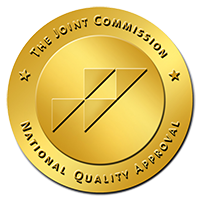The following is a summary of a research paper BBGH Social Work Intern Serenity Sterkel composed.
"As part of my internship at BBGH, as a social work intern through Chadron State College, I am required to write a research paper. I have a passion for mental health, and am aware of the high demand for services, especially in rural areas. Therefore, I chose to write my paper on Access to Mental Health Care in Rural Areas, specifically based on income and insurance levels.
Once I began researching and learning from behavioral healthcare workers in the Panhandle, I quickly learned that it was going to be difficult to focus only on income and insurance, as everything ties together. What I mean by that is, I learned quickly that it was all connected- from addiction, poverty, uninsured, waiting lists, transportation to the stigma of mental health, fear of privacy and limited resources... they all connect and make it difficult for patients to access mental healthcare. I discovered that this paper was going to address much more than lack of care based on income and insurance. I read an article that shared three major barriers to mental healthcare in rural areas; availability, accessibility, and acceptability and used these barriers to structure the paper.
Availability to mental healthcare in rural areas is difficult due to the limited amount of resources, waitlists, and the high need of services which leaves the resources that are available, spread thin. Accessibility to mental healthcare involves finding a mental healthcare provider/ agency that takes a patient's insurance, being aware of the resources that are accessible, and having ways to access them. The last barrier is acceptability. Acceptability addresses the stigma against mental health, as there seems to be more of a stigma in rural areas, compared to urban areas. In addition to the stigma of mental health, there is also a wider concern of privacy and anonymity in rural areas, due to there being smaller interconnected social networks in these areas.
At BBGH, a great way to address the barrier of availability is to expand the knowledge of providers, services, and facilities, and the insurance that is accepted. Upon during research, I also learned about the Collaborative Care Model which is a Model that is led by the patients’ Primary Care Provider and includes behavioral health care managers, psychiatrists and other mental health professionals who collaborate by using shared care plans that incorporate patient goals (American Psychiatric Association, 2022). Addressing the barrier of accessibility at BBGH, could be done by offering mobile mental health services, such as a mobile crisis response team that could consist of a mental health care provider, nurse, social work and EMT. Lastly, to address the barrier of acceptability, a great idea is to destigmatize mental health by education. Education is the most important part of overcoming the barrier of acceptability, and the best place to start is right here at BBGH."



